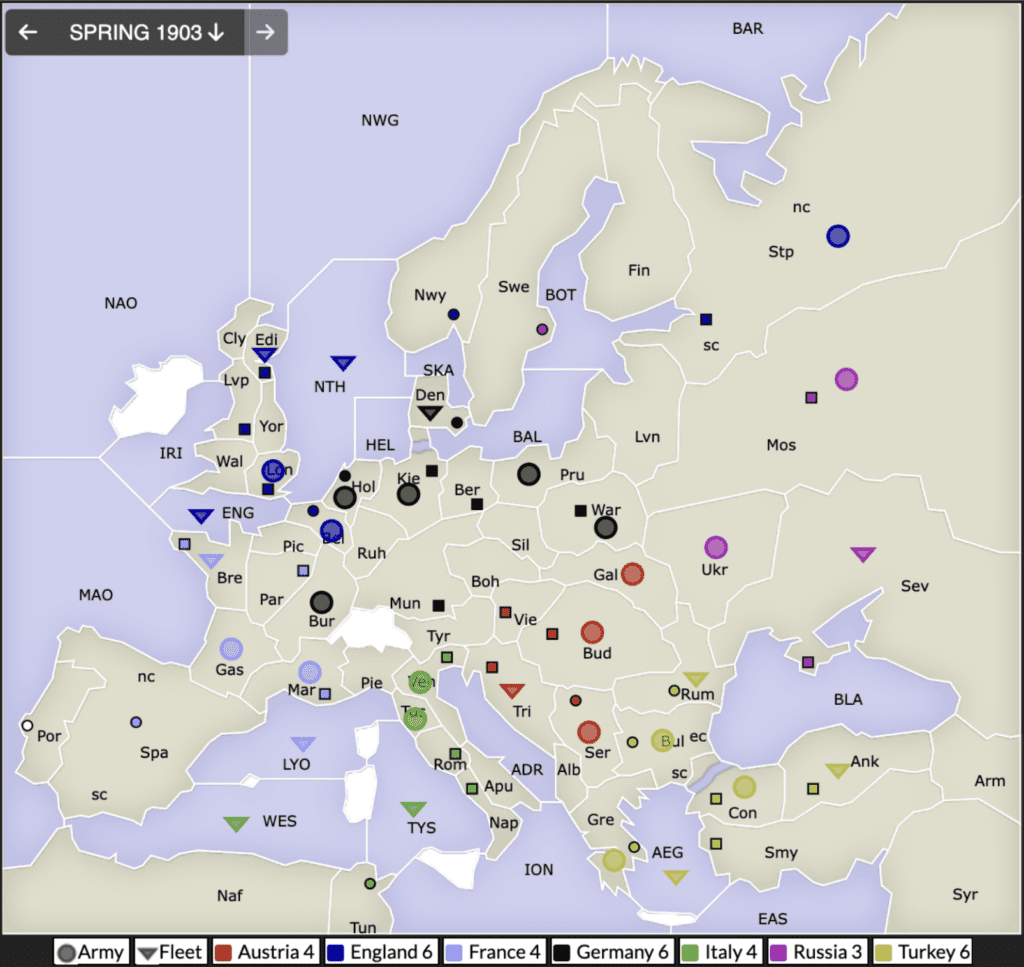Your cart is currently empty!
Teaching with Diplomacy — Week 3
This week, we spent around 30 minutes looking at conditionals in English. I created a worksheet to refresh students’ memories on how to use “if,” specifically the 1st and 2nd conditionals. I also spent time explaining the difference between the two conditional forms in terms of their meaning (possibility, current state, future states, etc.).
The worksheet briefly introduces the 1st and 2nd conditionals and provides some example sentences.
The worksheet is also integrated with the game map. I created five statements based on the current state of the map for students to complete using the 1st or 2nd conditional. Examples follow. The sentences help show that other auxiliary verbs may be used in place of will.

1st conditional statements:
- If Germany __________ (attack) France from Bur, they __________ (capture) Par.
- England __________ (move) their fleet to the NWG if they __________ (want) to control Norway (Nwy).
2nd conditional statements:
- If England __________ (have) more fleets, they __________ (dominate) the North Sea.
- Austria __________ (secure) more territories if they __________ (form) an alliance with Italy.
After completing the statements on the worksheet, I asked students to create their own statements. This was a useful step for two reasons:
- It exposed some strategy, acting as a sort of public manifesto for their country’s plans or admonishing other countries for their previous actions.
- It allowed me to gauge how well students had understood the concept of conditionals. As it turned out, some of the students struggled to understand the nuance of the 2nd conditional, so I stopped the class to explain in more detail.
After reviewing conditionals, I asked students to write conditional sentences in their zines (p. 8) to prepare for playing. The zines are collected at the end of class and provide feedback regarding their English usage.

Leave a Reply